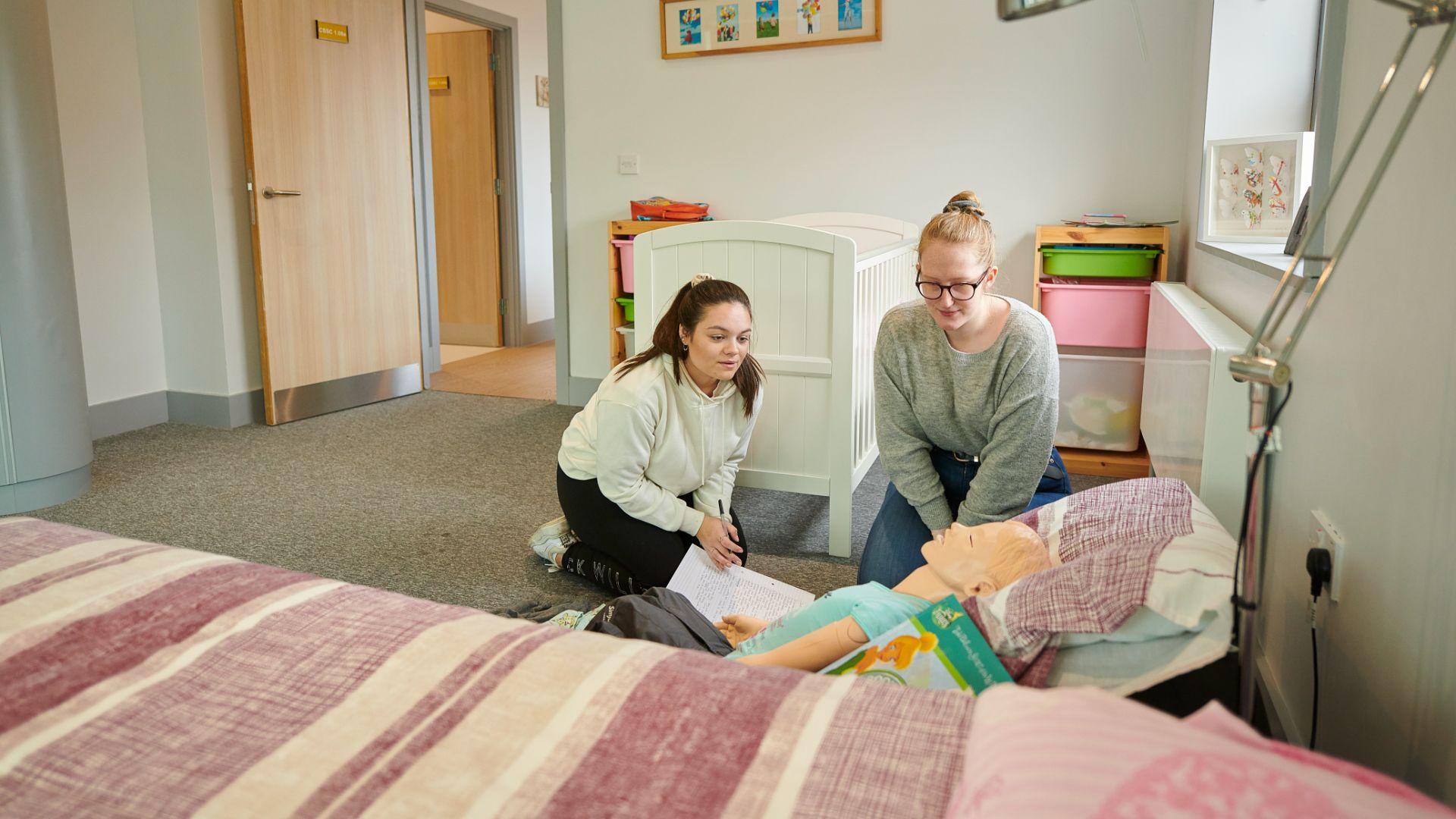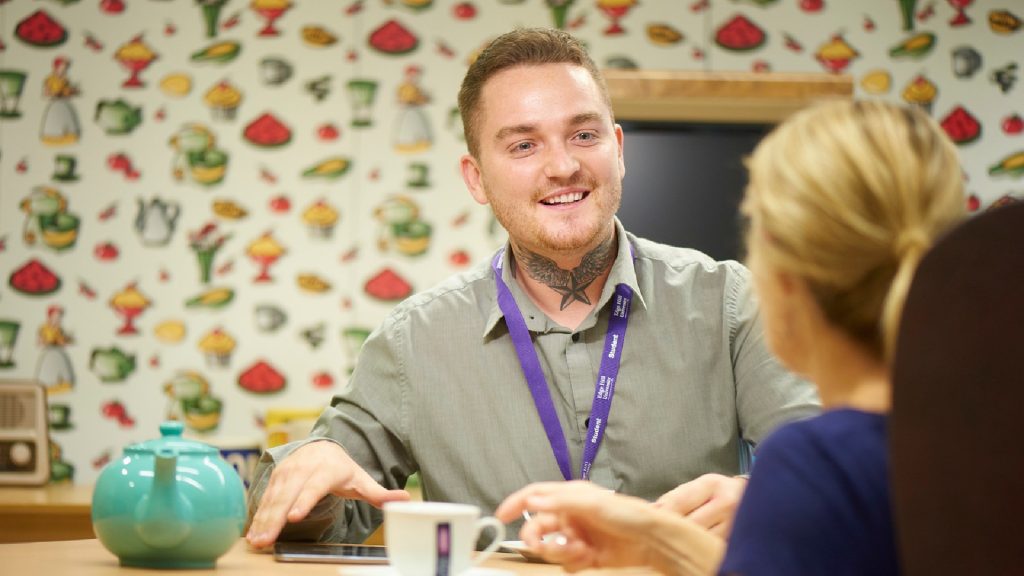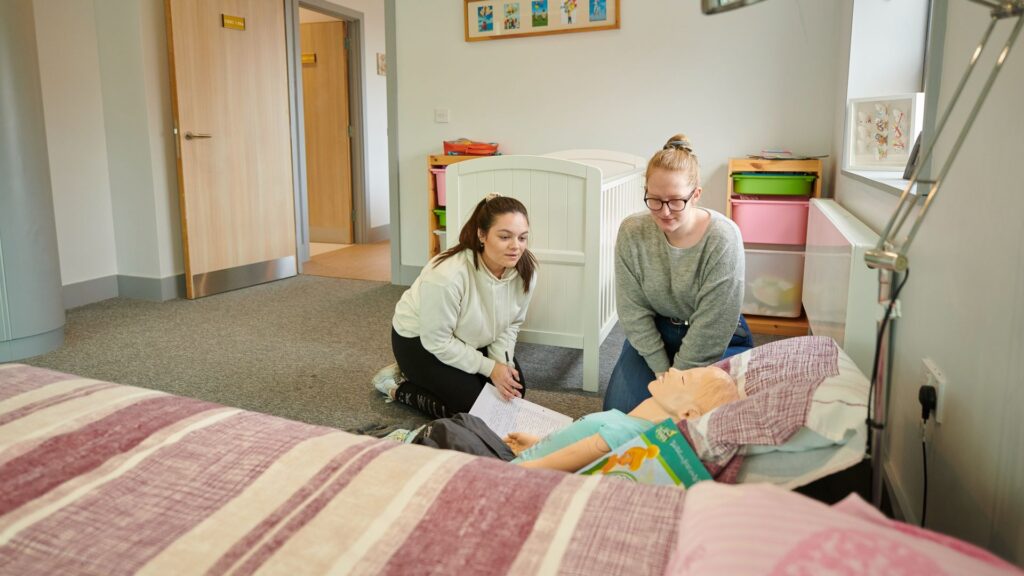

Lecturer in Practice Learning, Lucy Hindley, shares her own journey into social work as well as how you will be prepared for practice placements whilst studying social work at Edge Hill University.
My journey into social work
I always knew I wanted to work with people, but I wasn’t sure about how to do this. I then witnessed social work first hand. One of my grandparents had dementia and had a social worker to support them with their needs. Seeing how the social worker provided support in a personal capacity and our reliance upon the social worker during that time really sparked an interest into that profession for me, particularly in terms of navigating and understanding all the processes and the different support that can be accessed. I then spoke with people already in practice which helped to confirm that this was the profession I wanted to go into. I went straight from college into studying social work and my first placement was with adults. I then did a placement within children’s services, and this was the area that I decided to progress into. It’s a challenging profession but extremely rewarding which is really motivating.
How you’ll be prepared for practice
First and foremost we run a Preparation for Professional Practice module in first year of the BA (Hons) Social Work degree. This module is designed to help you consolidate a range of basic professional practice skills in line with regulated requirements. Then in your second year you will undertake a placement and begin to use what you’re learning in practice.
We support and prepare you for practice through running 30 skills development days. During the skills days, you will understand the role of a social worker in detail, including relevant and current topics in social work practice, how information should be consolidated, the importance of reflecting on experiences, and some of the challenges faced within the profession. You will just need to complete a reflective portfolio talking about you feel it went and what you have learned before heading into your placements.
There is support from external groups who come in to act out mocked up versions of real-life scenarios that you might come across in practice. There will be opportunities to use the Skills Flat in our Clinical Skills and Simulation Centre to simulate practice. An example of this is an assessed case study interview where you get chance to recreate a home-visit scenario. You’ll have support from the service user and carer group to conduct an interview with someone and then have supervision with a practitioner afterwards.
You will also be required to undertake and pass a skills-based assessment to determine ‘Readiness for Direct Practice’. This allows you to be able to simulate a little bit about what some of those conversations will be like in a real-life practice setting. Passing this element is a professional body requirement to enable you to progress through the course. You will also be required to complete a total of 200 days of social work practice over the entirety of the degree, which includes the 30 skills days.
How your social work placements will work
You will be given the chance to put in any preferences you have like your locality, any relevant previous experience you’ve obtained, the knowledge and skills that you’ll bring into placement and any specific areas of interest. It is also an opportunity for you to specify anything you’d like to personally to develop on during the placement. We then work to try and match you to the most suitable placement.
The first placements are generally voluntary sector placements, in charities or in community services. For the final placement, you will have access to our placement showcase event through our partnership with the Cheshire & Merseyside Social Work Teaching Partnership. This allows you to express an interest in a local authority and specify a first and second choice. If you’ll be studying on one of our integrated nursing and social work Masters courses then we will always aim to allocate you to an integrated placement, taking into account the specialism of the course you’ve picked (such as adult, children, mental health) but ensuring that the placements meet both nursing and social work requirements.
There are lots of different placements available. The voluntary sector placements are generally in charities or organisations that are in the third sector. This could involve working in areas such as domestic abuse organisations, drug and alcohol services, mental health organisations, advocacy services, or supporting young people in supported accommodation. Final statutory placements could be in the NHS or local authorities working with children and families, safeguarding, adult services, early intervention, or mental health teams.
During your placements there will also be recall days where you get the chance to come back onto campus and reflect on your placement experience with fellow students. The practice learning team facilitate these days and are available to provide guidance on the portfolio and on practice assignments too.
What makes social work at Edge Hill stand out?
The preparation we provide before you commence on your placements is a standout feature of our social work degree, including the opportunities for you to simulate scenarios and speak to practitioners on campus. Hearing direct experience from professionals and lecturers who work in practice makes the course current too, you’re always up to date with the latest developments in the world of social work. Our location is very useful for placements too. We have links through the Cheshire & Merseyside Social Work Teaching Partnership and we are in close proximity to other regions too. Another benefit is the experiences you’ll receive from others on your course. There will be mature students who already have lot of life experience and those starting the degree straight from college. Throughout your degree you’ll be able to hear, learn and network with a variety of professionals and students, all who bring and share their own knowledge and experiences.
October 19, 2023


